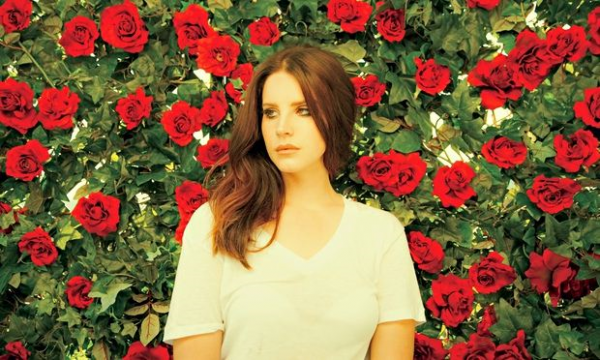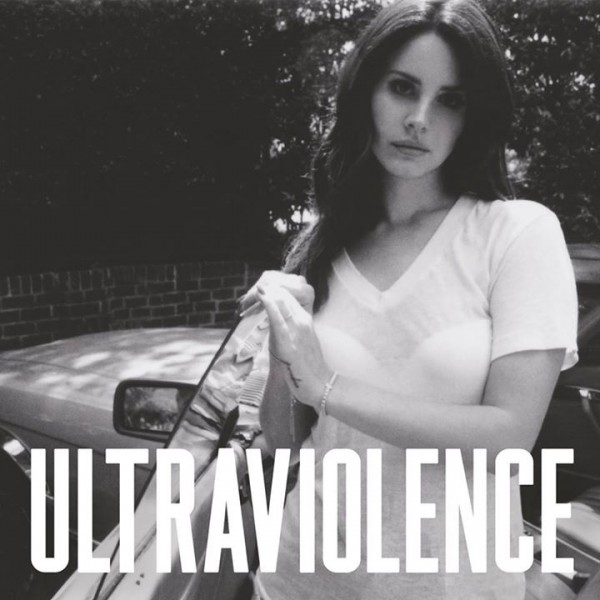Last December Lana Del Rey released a short film — a lengthy music video, really — entitled Tropico. Just prior to its release, she announced that it would be a “farewell.” But as with most of her mind-boggling statements, it was unclear what she was referring to. Would she be dropping the Lana Del Rey pseudonym in favor of reverting to her prior name, Lizzie Grant? Would she be retiring from the music business? It was anyone’s guess. And she’s continuing to baffle people with her interviews regarding the release of her new album, Ultraviolence, recently telling The Guardian, “I wish I was dead already.” Perhaps that was a warning that she might kill herself if Ultraviolence wasn’t well-reviewed? Probably not, but it’s as good as any theory you’ll find. Perhaps it’s just meant to make people over-analyze her, just as Ultraviolence begs to be over-analyzed?
The trouble with over-analyzing Ultraviolence is that in order to do so the listener must not let their guard down. This is an album that requires the suspension of disbelief, but it seems most critics are clinging on to their disbelief for dear life while writing about it. And if you do that, you’re not inclined to like it very much. (You can’t get absorbed in a movie if you keep telling yourself “this is only a movie,” and that’s the way most critics are approaching Ultraviolence.) This is an album about characters, not statements about Lana herself. And if you constantly dwell upon the singer, not letting yourself get lost in the stories, well, you’re bound to be confused and, more than likely, disappointed. Reason being, you can’t quite grasp who Lana Del Rey is when you listen to this album. You can learn a lot about the characters that inhabit her mind, but the character that is Lana Del Rey remains a grand mystery. Which is actually one of the reasons why the album is so brilliant. Far too many albums consist of artists telling you all about who they are, to a point that it feels as though they’re shoving it down your throat. It’s refreshing, then, to hear an artist singing songs that are about anyone but herself. Many listeners will miss this point, however, largely due to the fact that she sings these stories in first person.

The album opens with “Cruel World,” one of its most compelling and moody songs, and one which clocks in at 6:39. “I got your Bible and your gun / And you love to party and have fun / And I love your women and all of your heroin / And I’m so happy now that your gone,” she sings during one pre-chorus. It’s one of many songs where Lana comes across like quite the junkie if you look at the lyrics as declarations about herself. For example, during the splendidly trippy and poetic “Brooklyn Baby” she sings, “You say I’m like the ice I freeze / I’m churning out novels like / Beat poetry on Amphetamines.”
One of the songs on Ultraviolence is called “Fucked My Way To The Top.” Can you guess what that one is about? “I fucked my way up to the top / This is my show,” she sings. “I fucked my way up to the top / Go, baby, go.” Perhaps more than any other song on the album, you can analyze it to death, but you’re not going to come up with an answer. Is it Lana’s story or is it Lana’s *story*? Does it matter? I would say no. It’s a song and you’ll either enjoy it or you won’t. If you cringed when Lana sang “my pussy tastes like cherry cola” on her Paradise EP, well, then you’re sure to be offended by this one. On the other hand, if you admired her for having the nerve to sing that lyric, then you’re sure to applaud this one. Lana actually discussed it in conversation with Grazia magazine and said, “It’s about a singer who first sneered about my allegedly not authentic style but later she stole and copied it.”
Some of the best songs from the Ultraviolence sessions are the deluxe edition bonus tracks. “Florida Kilos,” an ode to cocaine, begins with some gentle guitar playing that sounds like it’s lifted from an album by the Eagles, completely unlike the rest of Ultraviolence. And once the beat kicks in, it sounds like a slice of ’80’s pop. But it’s highly enjoyable and even single-worthy.
The piano and strings that open the title track, “Ultraviolence,” call to mind her first hit, 2011’s viral “Video Games.” Some critics will tell you that she hasn’t done a song as good as “Video Games” since but those critics haven’t taken a good listen to the Ultraviolence album yet, for it’s clearly crammed with songs that are far superior to anything she’s done previously. But, hey, who cares what the critics think? Perhaps you do, since you’re reading this review. However, many of Lana’s detractors write about her so often that there seems to be very little difference between them and her stans, except, perhaps, that they’re slightly more eloquent with their negativity. Or they use big words so they can feel superior to their readers. Regardless, Ultraviolence is one of those albums that’s getting so much hype that it’s practically mandatory listening for anyone who considers themselves up on pop culture. So, you might as well stop reading this review and go listen to it already. Whether you like it or not is your opinion to be had, but I would advise you to just bask in its artistry and not dwell on what your opinion is going to be the first time you listen to it. In other words, look at the whole picture before deciding whether or not you like it.



Leave a Reply